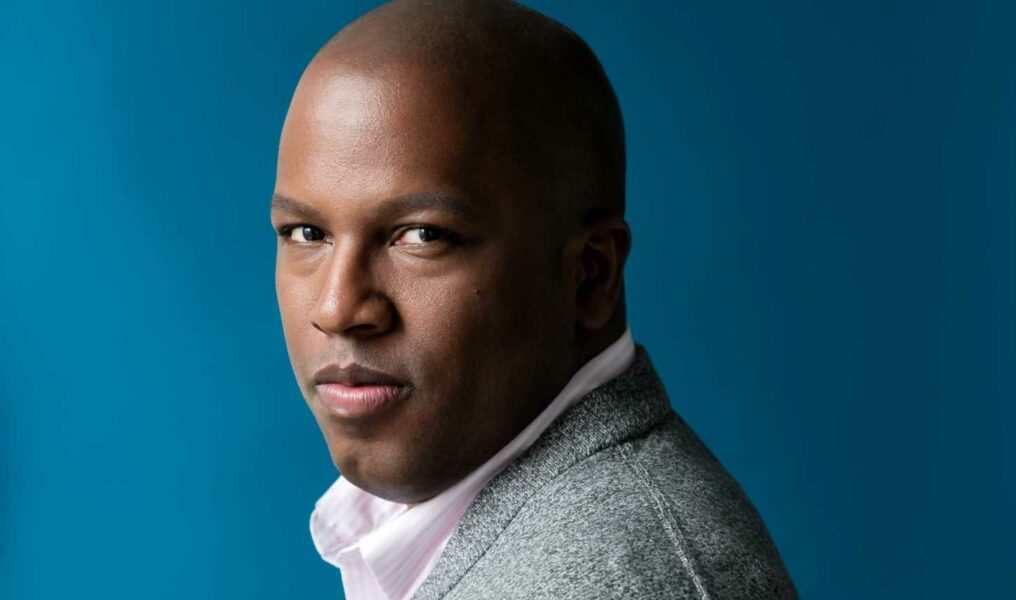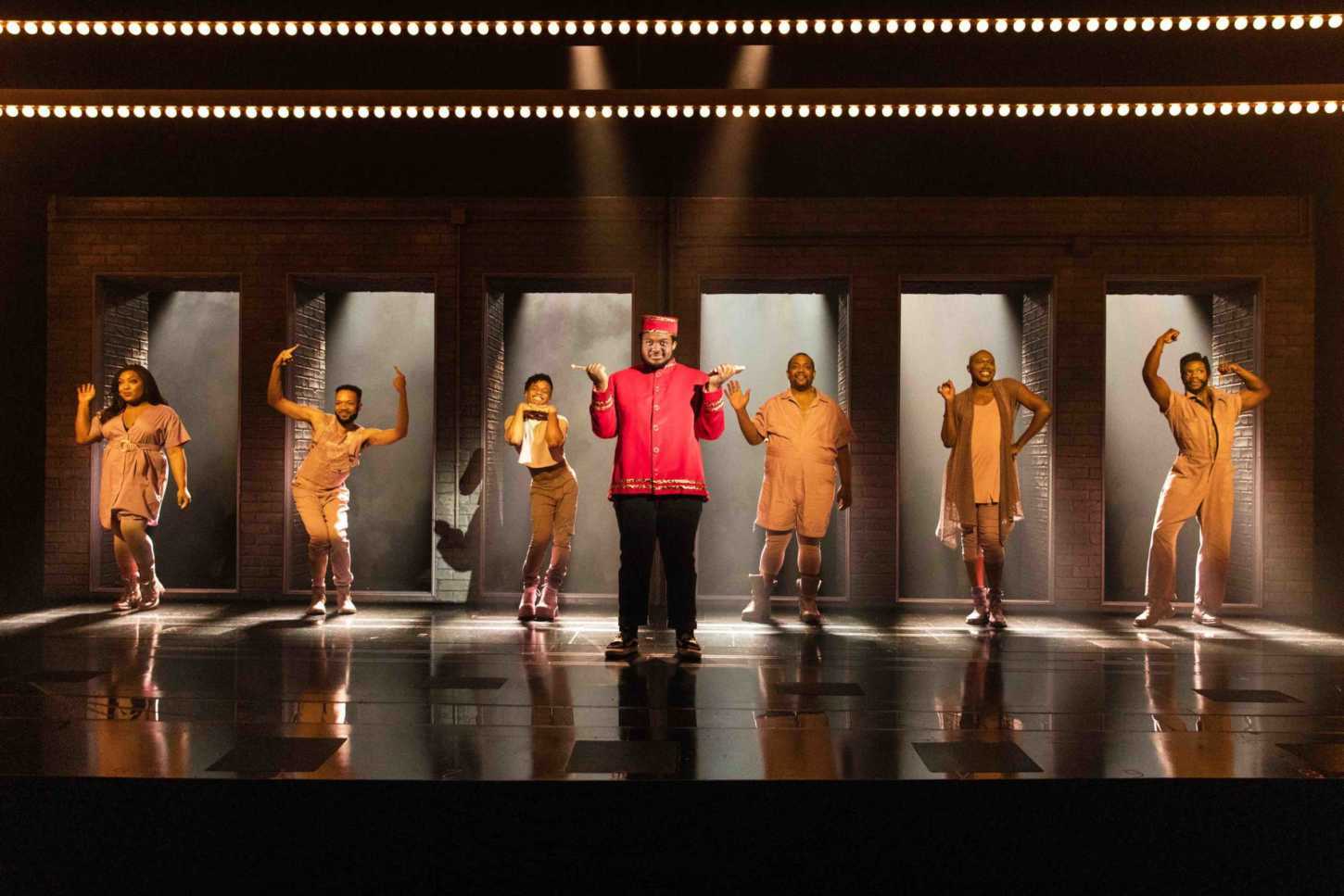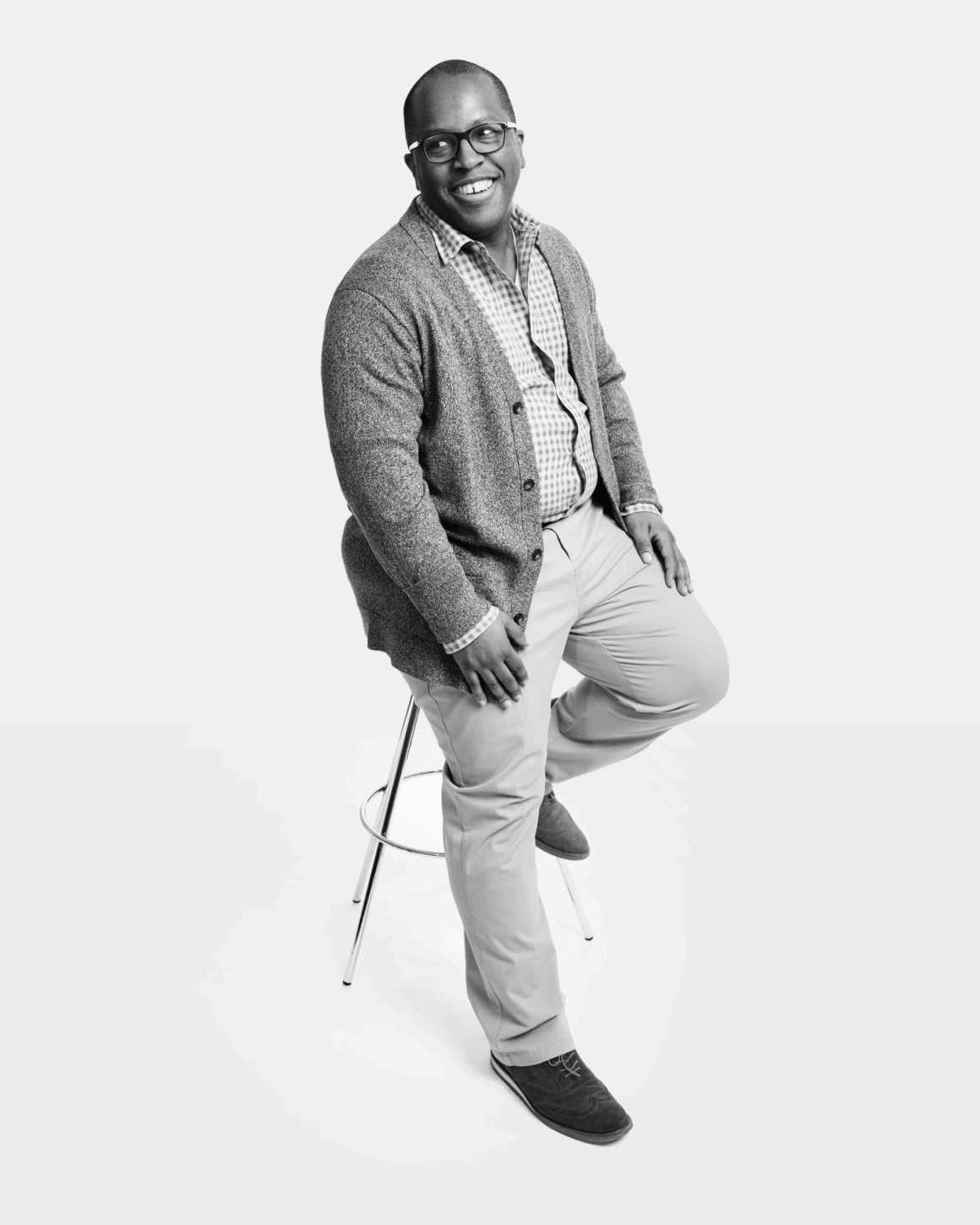How This Detroit Native Is Reshaping Broadway With Black, Gay, Fat Representation
Michael R. Jackson reflects on his wildly successful, Tony Award-winning Broadway show

While “A Strange Loop” — celebrated as a “Big, Black, Queer-Ass American Broadway Show” — has some similarities to its creator Michael R. Jackson’s life, it’s not an autobiography.
The Detroit native has seen his musical win a Pulitzer Prize for Dramatic Literature and a Tony Award for Best Musical in the past two years.
He created the story, one in which a Black queer man is writing a musical about a Black queer man writing a musical about…well, you get it. And while, yes, like his character Usher, he is a Black queer man who writes musicals and attended New York University, “A Strange Loop” is a decidedly fictional, imaginative accomplishment.
It's a work committed to representation. Because while Broadway is gay, it has not been Black, gay and fat.
“I wanted to show somebody who was Black and gay and grappling with something — not like he was going to die, but [that] he had real-life issues that he is dealing with,” Jackson says. He wanted to show the journey of a person struggling with his identity who may or may not make it to the other side. Usher wouldn't be killed by the police. He wouldn't die of AIDS. And since Jackson wrote it, he got to make that call.
What Usher does have are thoughts that people wouldn't normally say aloud. It’s why the background actors on stage portray the voices — often highly critical — in his head. Sometimes they mock him for being a race traitor, sometimes they tell him his work needs to be more intersectional so white allies have something to hold on to. Meanwhile, as he tries to date more, he laments that the gay community rejects him for being too Black, too feminine, too fat and possessing too small of a dick.
"A Strange Loop," as if it weren't already apparent, is not a show that holds back.

“I wanted somebody Black who was not totally in the mainstream of thought, who was being very honest and candid about where he’s coming from,” Jackson says. “I never got to see that sort of representation. I wanted to just be really solid in expression and thought and feeling [in portraying] a Black character and a Black, gay character.”
The goal was always to introduce someone to audiences that they’ve never seen in quite this way on Broadway.
“I don’t think there’s ever been a fat, Black character who you had to really follow and track their life and their existence through a whole play or musical before,” Jackson says. “They are usually the side characters or there for comedy. I think it’s important for people to see different kinds of bodies on stage.”
While representation was important, so was creating a multi-dimensional individual with a singular story. Jackson wasn’t trying to make Usher stand for everyone who is Black, queer and fat, so, for instance, song lyrics explore paths Usher took that were different from others who identify in a similar way to him.
“There’s this emphasis on all Blackness being sort of monolithic,” Jackson says. “I understand the value in that, but I’m also interested in the value of a Black individual who stands apart in some way, who you have to focus on and see things from his perspective.”
Jackson grew up in Detroit, something he says has influenced both who he is as a person and his work. It has grounded him in what he calls a humble, Midwestern, middle-class background. Jackson attended Golightly Educational Center and Cass Tech where he was on the debate team. He and his family attended First Glory Baptist Missionary Church, which is where he said he first fell in love with music and singing.
“Detroit, to me, is not a city that’s highfalutin,” Jackson says. “It’s a real-person city. That aspect of it is definitely a part of who I am and what I do as an artist because I’m very much interested in real life. The people of Detroit are very real, they’re very authentic.”
Jackson describes himself as being thankful that he is from Detroit because of the foundation it gave him — and he said he is always rooting for the city. Though there are currently no plans for "A Strange Loop" to play in Detroit, Jackson is "very curious" to know how those in the city will receive the work once it comes through town.
Jackson left Detroit for New York when he was 18, at the time eager to leave for a more cultural landscape, something he says he has since grown out of. Now, he says, he has a renewed appreciation for his hometown.
Jackson spent nearly a decade working on “A Strange Loop,” and in the years since it premiered off-Broadway in 2019, he’s been featured in such publications as The New Yorker, Variety and Town & Country. He and the off-Broadway cast performed a “Tiny Desk (Home)” concert on NPR, and he’s done the late-night circuit. While the pandemic delayed the show’s Broadway debut until 2022, people have been eager to share with him what the show has meant.
“The most gratifying stories for me are the many people who have come up to me and told me that they felt seen or affirmed,” Jackson says. “There was a gentleman who came up to me and told me he had a hard time with his family accepting him as gay and that he invited some of his family members to the show, and the show started a dialogue in their family.”

Now that “A Strange Loop” has launched, Jackson’s invested time in working on another musical that is currently being workshopped. He is also prepping for another production, a project he’s written that goes back to his childhood love — soap operas, Lifetime movies and melodrama. The show, called “White Girl in Danger” is, according to Playbill, a musical that follows a young woman, Keesha, living in the “Blackground” of a town called Allwhite who wants to become Allwhite’s leading heroine. She does so by appropriating the storylines of her three main rivals: Meagan, Maegan, and Megan. Her newfound power puts her in danger, however, when she attracts the Allwhite Killer.
“When I first moved to New York, my dream was to be a soap-opera writer,” says Jackson, who had a 12-week marketing internship at ABC for“All My Children” and then interviewed for a job at CBS Daytime while applying to the graduate musical theater writing program at NYU. “If I had gotten the soap-opera job, I wouldn’t be writing musicals today.”
And his parents, who still live in Detroit, couldn't be any happier about the direction his life has taken. He said they loved the show and were proud of the show he had created.
“[People] assume when they see the show that I must have this tortured relationship with my parents or that my parents are bad people,” Jackson says. “That just isn’t true. I tell that to people, and sometimes they sound like they’re disappointed. My parents were at opening night of both the off-Broadway and Broadway versions of my show. They came to the Tonys with me. Things are working with my mom and dad.”
They had "some questions about some parts of it, or they wondered if parts of it were about them,” Jackson says, "but they also saw that it was a piece of fiction."
He added that, by the end of the production, "They were really quite proud.”
As for those awards: It's hard to compare with the excitement of winning both a Pulitzer and a Tony. The first came as a total surprise, while the second he was able to anticipate because nominations are made public.
“They were different kinds of excitement," he says. "One was like Christmas, and the other was like hoping for a snow day."









